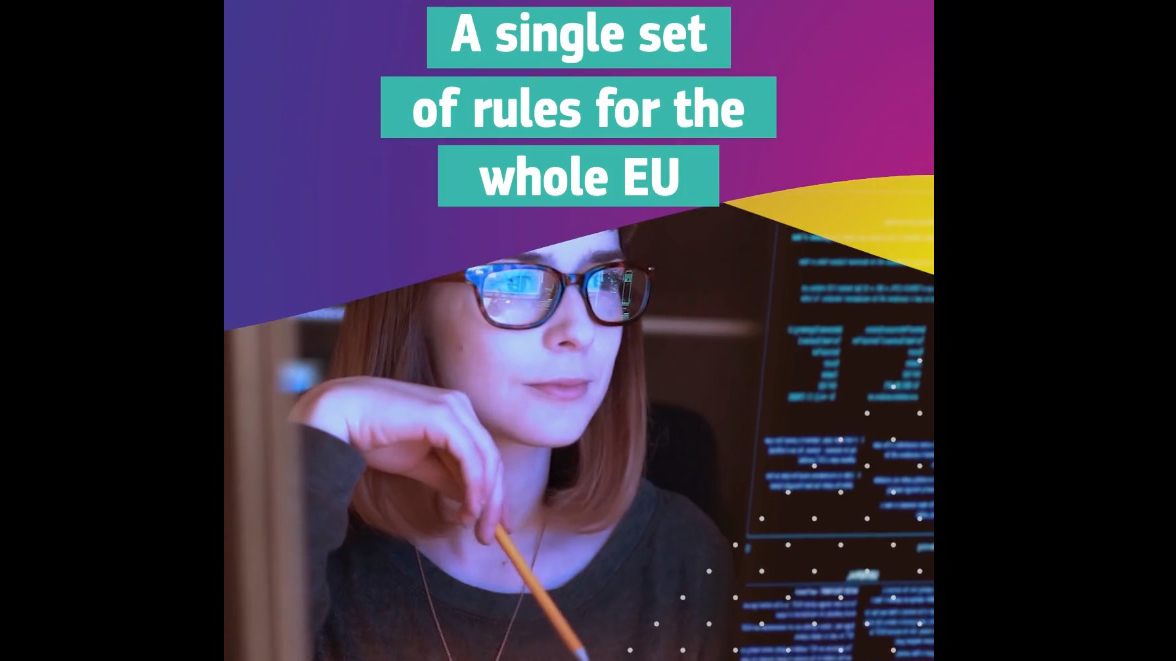Europe Proposes Massive Digital Market Overhaul
Would define 'gatekeepers,' levy heavy fines for violating new do's and don'ts

The smarter way to stay on top of the streaming and OTT industry. Sign up below.
You are now subscribed
Your newsletter sign-up was successful
The European Commission has unveiled what it bills as an ambitious reform of the digital marketplace and it clearly appears to deliver on that billing. It includes proposed new rules for social media, online markets, ISPs, and other platforms that operate in the European Union, as well as a definition of who qualifies as a digital "gatekeeper" and stiff penalties for gatekeepers who get out of their lanes.
The new rules were set out in the Digital Services Act and the Digital Markets Act.
Also Read: FTC Investigating Video Streamer, Social Media Data Practices
The Digital Service Act covers network infrastructure companies, access providers, domain name registrars, cloud hosting services, online marketplaces like Amazon, app stores, and social media platforms, with tougher rules for "very large" platforms, which the EC says pose "particular risks in the dissemination of illegal content and societal harms."
The reforms include transparency reporting, complaint and redress mechanisms, vetting third-party suppliers, user-facing transparency about online advertising, external audits, sharing data with authorities and researchers, codes of conduct, and more.
The goal of the act is to "improve the mechanisms for the removal of illegal content and for the effective protection of users’ fundamental rights online, including the freedom of speech," as well as to strengthen public oversight of online platforms, particularly those very large platforms that reach over 10% of the EU population--Facebook, Amazon, etc.
The Digital Markets Act is "a set of narrowly defined objective criteria for qualifying a large online platform as a so-called 'gatekeeper.'" If they meet the definition, they will have a list of "do's and don'ts" that apply to their daily operations.
The smarter way to stay on top of the streaming and OTT industry. Sign up below.
A company will be considered a gatekeeper if it: (1) "has a strong economic position, significant impact on the internal market and is active in multiple EU countries"; (2) "has a strong intermediation position, meaning that it links a large user base to a large number of businesses"; and (3) "has (or is about to have) an entrenched and durable position in the market, meaning that it is stable over time."
Any company to which those apply (1) must allow for interoperability by third parties in certain situations; (2) must allow businesses to access the data they generate when they use a gatekeeper platform: (3) must provide advertisers tools and info to verify the their ads on the gatekeeper platform, and 4) allow business users to contract with customers outside the platform.
Those are the do's--or, more accurately, "musts." The don'ts include (1) favoring their own services or products in rankings; (2) preventing consumers from linking to businesses outside the platform; and (3) preventing the de-installation of pre-installed software or apps.
Failure to do or not do what they are supposed to could result in fines up to 10% of a company's total annual worldwide sales and periodic payments of up to 5% of average daily sales.
“As representatives of the world’s leading companies across all the segments of industry, we recognise our shared responsibility to maintain a safe, competitive, and innovative online environment,” said Guido Lobrano, of tech association ITI. “All relevant stakeholders need to work together towards these goals. While ITI and its members will develop detailed views on the legislative proposals in the coming weeks, we support the Commission’s effort to safeguard citizens from illegal content online and will continue to advocate for rules that maintain a well-functioning, competitive online ecosystem. We look forward to discussing these and further aspects of today’s proposals with the European institutions in the coming weeks. We are committed to serving as a useful resource to all stakeholders involved in the process.”
But ITI did not like the designation of "gatekeeper," which it found pejorative. "There should be no negative implication attached by default to companies designated as gatekeeper under the DMA criteria," it said, adding that it was not appropriate for the legislation "to label the designated companies with an inherently negative definition. This designation is only a prerequisite to attach more stringent obligations to platforms that play a systemic role in a market. Talking about a 'provider of core platform services' would be, for example, more appropriate."
Contributing editor John Eggerton has been an editor and/or writer on media regulation, legislation and policy for over four decades, including covering the FCC, FTC, Congress, the major media trade associations, and the federal courts. In addition to Multichannel News and Broadcasting + Cable, his work has appeared in Radio World, TV Technology, TV Fax, This Week in Consumer Electronics, Variety and the Encyclopedia Britannica.

